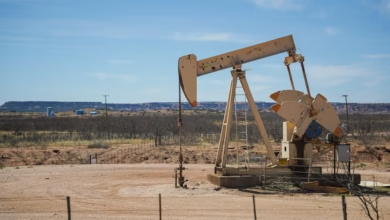OPEC and Oil Policies: Navigating the Geopolitics of Crude Oil and Future Energy Alternatives

The Organization of the Petroleum Exporting Countries (OPEC) plays a pivotal role in shaping the global oil landscape, influencing everything from crude oil prices to the dynamics of oil market trends. As a consortium of oil-producing nations, OPEC's decisions can reverberate across the globe, impacting oil refining processes, oil consumption patterns, and even the geopolitics of energy security. In a world increasingly focused on sustainable practices and the environmental impact of oil, understanding OPEC's policies and their implications is more critical than ever. This article delves into the multifaceted role of OPEC, exploring its influence on the global oil trade, the intricate geopolitics surrounding oil transportation and supply chains, and the future of oil in the context of emerging oil alternatives such as biofuels and natural gas. Join us as we unpack how OPEC navigates the complexities of oil exploration, oil field services, and oil regulation, while balancing the urgent need for environmental compliance and innovative oil technologies.
- 1. Understanding OPEC: Its Influence on Global Oil Prices and Market Trends
- 2. The Geopolitics of Oil: How OPEC Shapes Oil Trade and Energy Security
- 3. Future of Oil: Balancing Oil Alternatives and Environmental Impact with OPEC Policies
1. Understanding OPEC: Its Influence on Global Oil Prices and Market Trends
The Organization of the Petroleum Exporting Countries (OPEC) plays a pivotal role in shaping the global oil trade, influencing oil prices and market trends through its production decisions and regulations. Established in 1960, OPEC is a coalition of oil-producing nations that coordinates and unifies petroleum policies among its member countries. By managing oil production levels, OPEC seeks to stabilize oil prices, which significantly impacts the global economy.
Understanding OPEC's influence requires examining how its decisions affect crude oil prices. When OPEC collectively decides to reduce production, it often leads to a rise in oil prices due to decreased supply in the market. Conversely, an increase in production typically results in lower prices. This dynamic is crucial for oil investors and businesses reliant on oil, as fluctuating prices can impact everything from oil refining to oil transportation costs.
In addition to direct production control, OPEC's influence extends to oil market trends. The organization plays a significant role in shaping energy security by ensuring stable supplies of oil, which is essential for both developed and emerging economies. With the rise of shale oil production in the United States and advancements in offshore drilling technologies, OPEC must continuously adapt its strategies to maintain its market share and influence. The competition from biofuels and oil alternatives further complicates the oil landscape, pushing OPEC to reconsider its long-term policies.
Moreover, OPEC's decisions also intersect with oil geopolitics. The organization’s actions can provoke reactions from non-member countries, particularly those with substantial oil reserves or emerging energy technologies. This interplay affects global oil supply chains and can lead to strategic oil price hedging by nations and corporations aiming to mitigate risks associated with price volatility.
As the world increasingly focuses on environmental impacts and the transition towards cleaner energy, OPEC faces growing pressure to balance oil consumption with the need for sustainability. The advent of natural gas as a cleaner fossil fuel alternative, alongside innovations in oil technologies and oil field services, showcases the shifting priorities within the industry. The exploration of oil sands and the management of oil storage facilities are additional factors that OPEC must consider in its regulatory framework.
In conclusion, OPEC's role in the global oil trade is multifaceted, influencing everything from crude oil prices to energy security and environmental considerations. As the oil landscape evolves with new technologies and shifting market dynamics, OPEC will continue to be a crucial player in the ongoing dialogue about the future of oil and energy consumption.
2. The Geopolitics of Oil: How OPEC Shapes Oil Trade and Energy Security
The geopolitics of oil plays a crucial role in shaping the global oil trade and influencing energy security. As a central player in the oil market, the Organization of the Petroleum Exporting Countries (OPEC) significantly impacts oil prices and overall oil market trends. By controlling a substantial portion of the world's oil reserves, OPEC can manipulate crude oil supply, which in turn affects global oil prices. This power allows member countries to leverage their oil resources as a tool for political and economic influence.
OPEC’s decisions on oil production levels directly correlate with oil price fluctuations. When OPEC decides to cut output, this typically leads to higher oil prices, benefiting member states economically but potentially destabilizing the oil consumption patterns of importing nations. Conversely, when OPEC increases production to maintain market share, it can lead to lower prices, which might benefit consumers but hurt oil-producing economies, particularly those relying heavily on oil revenues.
Moreover, the geopolitical landscape is further complicated by the rise of shale oil production in the United States. The advent of advanced oil technologies has allowed for significant increases in domestic oil output, challenging OPEC’s traditional dominance in the market. This has led to a shift in oil supply chains and has created a new dynamic in oil geopolitics, as OPEC must now consider the implications of U.S. energy independence and the associated impacts on oil prices.
Additionally, offshore drilling and oil exploration in regions with large oil reserves, such as the North Sea and the Gulf of Mexico, are further reshaping the landscape. These activities not only contribute to the global oil supply but also raise discussions about the environmental impact of oil and the transition toward oil alternatives, such as biofuels. As countries strive for energy security, the balance between fossil fuel consumption and renewable energy sources becomes increasingly vital.
OPEC's influence extends beyond just oil prices; it also plays a role in regulating oil transportation and storage. Efficient oil pipelines and storage facilities are essential for maintaining supply chains and ensuring that crude oil reaches markets promptly. Furthermore, the organization’s stance on oil compliance and regulation affects how member countries manage their oil field services and overall production strategies.
In summary, OPEC's role in oil geopolitics is multifaceted, influencing not only oil prices and global trade but also broader issues of energy security and environmental considerations. The interplay of these factors continues to shape the future of oil investing and the evolving landscape of energy consumption.
3. Future of Oil: Balancing Oil Alternatives and Environmental Impact with OPEC Policies
The future of oil is a complex interplay between the growing demand for oil alternatives and the environmental impact associated with traditional crude oil extraction and consumption. As the Organization of the Petroleum Exporting Countries (OPEC) navigates this evolving landscape, its policies will play a significant role in shaping oil market trends and the global oil trade.
The rise of biofuels and other oil alternatives is increasingly influencing energy security and oil consumption patterns worldwide. OPEC member countries are challenged to balance their reliance on oil reserves with the urgent need to address climate change and reduce the environmental impact of oil extraction and refining processes. As renewable energy sources gain traction, OPEC's approach to oil geopolitics and its strategic decisions surrounding oil prices will likely reflect a commitment to sustainability while still catering to the demands of the traditional oil market.
Moreover, advancements in oil technologies, including enhanced oil recovery methods and improvements in oil field services, can help minimize the environmental footprint of oil production. For instance, shale oil extraction has transformed the landscape of oil supply chains and oil transportation, but it also raises questions about the sustainability of such practices. OPEC must consider the implications of offshore drilling and oil sands extraction on both the environment and global oil prices.
As oil investors and stakeholders look toward the future, oil price hedging strategies may need to adapt to the shifting paradigm of energy consumption. With the potential for stricter oil regulation and compliance measures, OPEC's policies will be instrumental in guiding the industry toward a more sustainable and responsible approach to oil exploration and production.
In conclusion, the future of oil will be defined by a delicate balance of maintaining robust oil markets while transitioning toward more environmentally friendly alternatives. OPEC's ability to navigate these challenges will significantly impact the global oil landscape, influencing everything from oil pipelines to downstream oil operations and the overall health of the petrochemicals sector.
In conclusion, the Organization of the Petroleum Exporting Countries (OPEC) plays a pivotal role in shaping the global oil landscape. Through its influence on oil prices and market trends, OPEC not only affects the economics of oil but also the geopolitics surrounding oil trade and energy security. As we navigate an era of increasing oil consumption alongside the urgent need for environmental sustainability, the future of OPEC's policies will be crucial in balancing crude oil production with the rise of oil alternatives, including biofuels and natural gas.
The complexities of oil refining, offshore drilling, and the management of oil reserves will continue to intersect with advancements in oil technologies and compliance regulations. OPEC's strategies will need to adapt in response to the evolving dynamics of oil supply chains and oil price hedging, particularly as shale oil production and oil sands extraction challenge traditional paradigms.
As oil investors and policymakers look towards the future, understanding OPEC's mechanisms will be essential for navigating the intricate web of oil transportation, storage, and field services. Ultimately, OPEC’s decisions will significantly impact not only the economic landscape of oil but also the environmental implications of oil consumption on a global scale. The interplay between OPEC's policies and the broader trends in the energy sector will be a defining factor in achieving a sustainable balance between energy needs and environmental stewardship.
References
1. Author, A. (Year). Title of the source. URL
2. Author, B. (Year). Title of the source. URL
3. Author, C. (Year). Title of the source. URL





